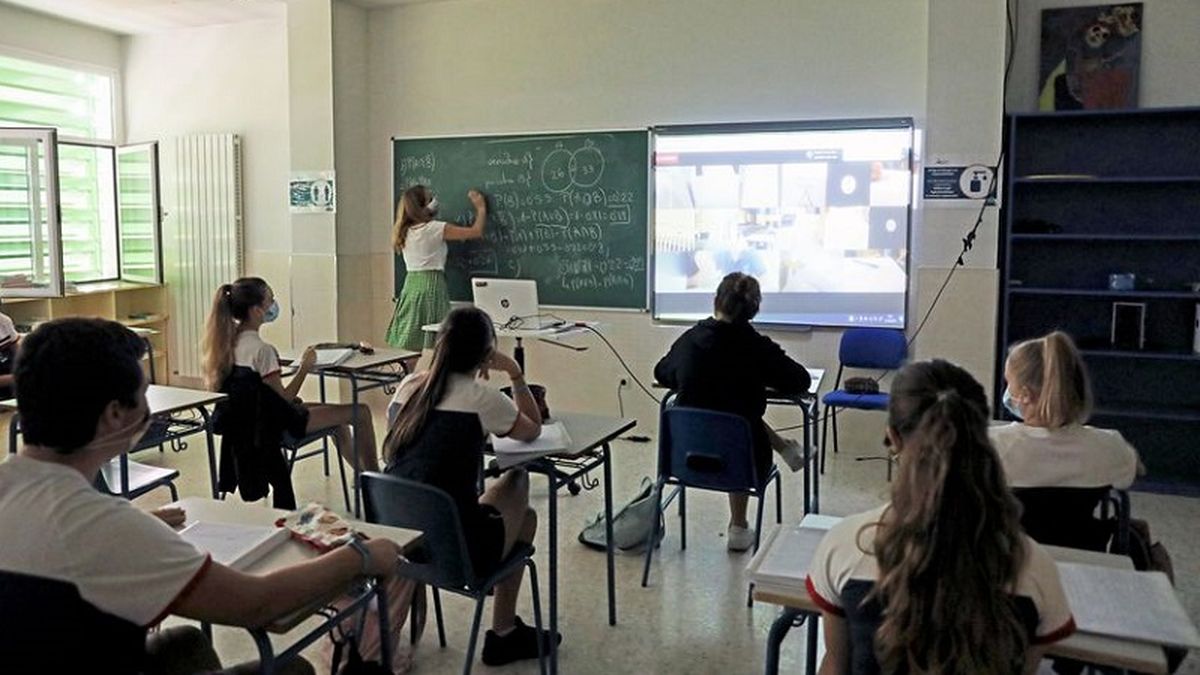In a complex inflationary context and with a strong dispute with the provinces underway, the Government of Javier Milei decided to remove the additional amounts from the Teacher Salary Incentive Fund that directly benefited teachersa measure that anticipates a union conflict, and at the same time, defined keep in place a tax cut that benefits private schools.
This is a measure implemented through a decree that extends until December 31 of this year the regime known as Decree 814which allows schools to take as payment on account of VAT a part of what they pay in employer contributions. The further away from the city of Buenos Aires, the greater the benefit.
The truth is that the Government justifies the measure on two reasons that seem to contradict its statements that the provinces should be responsible for their own expenses, a reason it used to decide. the definitive elimination of aid for teachers.
In the recitals of the decree that was published this Thursday in the Official Gazette it is stated that “The main operational and financial cost of privately managed educational establishments is represented by the salary component, which includes the corresponding employer contributions.”
Help for provincial governors
In justifying the extension of the benefit, the decree raises the issue of subsidies to privately managed schools: “The majority of private educational establishments enjoy state contributions, these being financed only by the Provinces, by virtue of the transfer of educational services to the provincial jurisdictions, in accordance with what was established several years ago by Law No. 24,049.”
The Government decree specifies that the aid is intended to prevent the salary expenses of the governorates from growing. “The increase in employer contributions will generate a significant increase in the budget items of the provinces, since the state contribution not only contributes to the payment of the salaries of curricular teachers but also to the payment of employer contributions of those salaries”indicates the note.
A measure that seeks to mitigate the impact on inflation
The other end of the measure is understood in that it seeks avoid a further increase in education costs at a time when classes are about to start. In the cases of schools without state contributions or with partial contributions, the establishments would be forced to increase fees beyond what has been defined until now based on the increase in costs resulting from inflation.
“In cases in which the educational institute does not receive a state contribution, or receives it only partially, the significant increase in employer contributions will cause significant increases in the value of the fees that families pay for educational services and will affect their economy.”says the decree.
No continuity for FONID
The presidential spokesperson, Manuel Adorni ruled out the possibility of sending funds for salaries and educational programs that the Nation owes to the provinces. In his last press conference, he confirmed that the Government is not considering using the National Teacher Incentive Fund, so the start of classes is in danger.
“In principle, the Nation is not going to transfer it because it is a fund that does not exist today, it does not exist,” He stressed this despite the claims of the governors and different teaching unions. This explains why the law that has been extended since 1998 until now lost its validity on January 1st.
The official assured that the salaries “they depend on the governors”, Therefore, he specified that “each jurisdiction is free to agree on the salary it wishes.” “Teachers in Argentina depend on the provinces and the City, they are free to agree on the salary they want or consider fair to start classes,” Indian.
The start of classes is in danger
Faced with this, the General Secretary of the Confederation of Education Workers of the Argentine Republic (CTERA), Sonia Alessoand the attached Roberto Baradel, They anticipated that The start of classes in the provinces depends on the Government sending funds to the FONID.
“For those who underestimate public education, we must tell them that public education will continue standing, teaching, resisting and dreaming”expressed Alesso.
Source: Ambito




